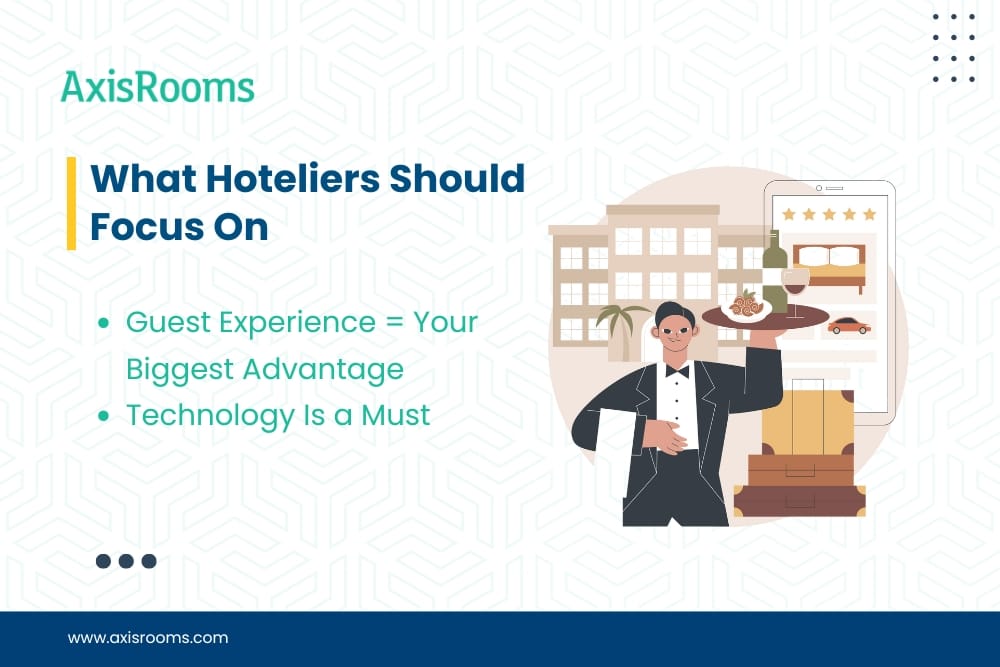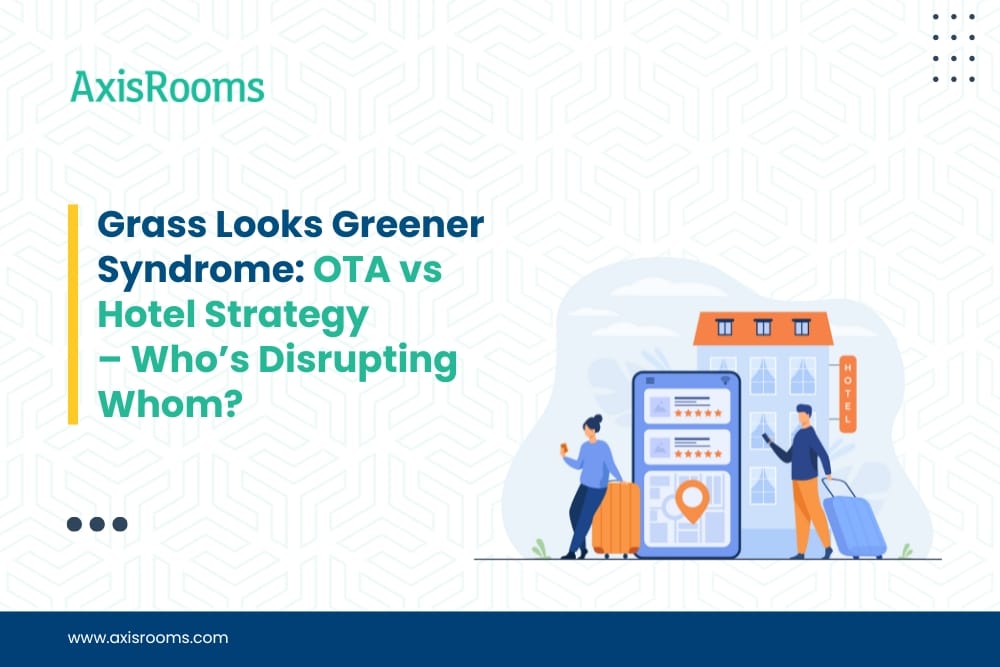The hotel business is changing fast. Earlier, the roles were clear: hotels welcomed guests, and OTAs (Online Travel Agencies) helped fill rooms. But now, both sides are stepping into each other’s world.
Hotels want to be more like OTAs — strong in technology and better at online sales. Meanwhile, OTAs are trying to offer more guest-focused services, just like hotels. It’s a classic case of “the grass looks greener on the other side.”
How Hotels Are Changing
Accor’s New Hotel Marketplace
Accor has created a digital platform where even independent hotels can join their system. This means small hotels can use Accor’s:
- Online booking engine
- Global distribution network
- Loyalty program (ALL – Accor Live Limitless)
It helps Accor grow without opening new hotels, and it gives smaller hotels access to better tools, visibility, and repeat guests.
Building on this marketplace strategy, Accor announced in May 2025 the development of a comprehensive meetings and events ecosystem. This new platform will unite more than 5,600 Accor hotels worldwide, hosting an inventory of 2.5 million square meters of event space and over 800,000 guest rooms. The system will enable self-service booking for event spaces, guest rooms, and catering services—all integrated with the ALL Accor loyalty program. Version one will be available by late 2025, focusing on small group bookings, with a more robust system launching in 2026.
Marriott’s Push for Direct Bookings
Marriott is improving its website and booking tools to get more guests to book directly. It’s working on things like:
- Better online experience
- Smarter marketing
- Stronger guest data
The goal is to depend less on OTAs and build a closer connection with guests.
Indian Brands Going Premium
In India, chains like OYO and FabHotels started with budget rooms but are now:
- Launching better-quality hotels
- Standardizing services
- Investing in tech and loyalty programs
They’re trying to offer a brand experience like big international chains — and control more of their bookings.
OTAs Are Also Shifting
While hotels are focusing more on distribution and tech, OTAs are slowly getting involved in operations too.
Booking.com’s Tech Investments
Booking Holdings he company behind Booking.com) has bought several hotel tech acompanies:
- HotelNinjas – a Property Management System
- PriceMatch – for pricing and revenue management
- Buuteeq – a digital marketing tool
They’re quietly building tools that help hotels run better, hoping to become more than just a booking site.
Indian OTA Experiments
OTAs like GoIbibo and Yatra have tried creating their own “soft brand” hotels (like GoStays and TGStays). These are budget hotels listed with OTA branding offering more trust and standard service. But OTAs still don’t run hotel operations — they only help bring in bookings.
Hotels vs. OTAs: What’s the Real Difference?
According to the latest industry insights, 37% of US travelers plan to book their 2025 accommodation directly – either through a hotel's official website (23.5%) or by reaching out via phone or email (13%). This figure exceeds the global average of 27% and rises to a whopping 57% among those over the age of 60 who prefer the direct booking approach.
What Hoteliers Should Focus On

1. Guest Experience = Your Biggest Advantage
While OTAs give you reach, your real strength is how guests feel when they stay. Invest in:
- Personal service
- Loyalty programs that actually reward guests
- Staying in touch even after they leave
This builds long-term loyalty — something OTAs can’t easily do.
2. Technology Is a Must
Even small hotels need smart tools now. Focus on:
- A website that converts visitors into bookings
- CRM and PMS that work together
- Revenue tools to manage rates
- Pre-arrival messaging and mobile check-in
- PMS integrations for smooth operations
If you don’t have the budget for in-house systems, joining white-label platforms (like Accor’s) can be a good middle path.
Product Spotlight: How AxisRooms Supports Smarter Distribution
Key benefits for hoteliers include:
- Real-time rate and inventory sync across channels
- Integrated booking engine for direct reservations
- Seamless connection with revenue management and PMS tools
- Reliable PMS integrations to unify operations and guest data
- Secure payment gateways to support frictionless transactions for direct and OTA bookings
- Analytics to track channel performance and optimize mix
As hotels aim to reduce OTA dependency and strengthen their direct channels, solutions like AxisRooms CRS provide the operational control and visibility needed to scale smartly without adding complexity. These tools also support a stronger hotel revenue strategy, helping owners make data-driven decisions for profitability and growth.
What the Future Might Look Like
Final Thoughts: Don't Just Compete — Collaborate Smartly
OTAs and hotels aren’t enemies — but their business goals are starting to overlap. Hotels shouldn’t try to “beat” OTAs but work smarter:
- Use tech to win direct bookings
- Offer great experiences that guests remember
- Join platforms that match your hotel’s values
- Build loyalty through service, not just points
Remember: OTAs may win the booking, but you can win the guest. And in the long run, that’s where the real value lies.
So yes, the OTA lawn might look greener. But if you focus on your own guest experience and tools, your hotel can grow just as beautifully — and even more profitably.


